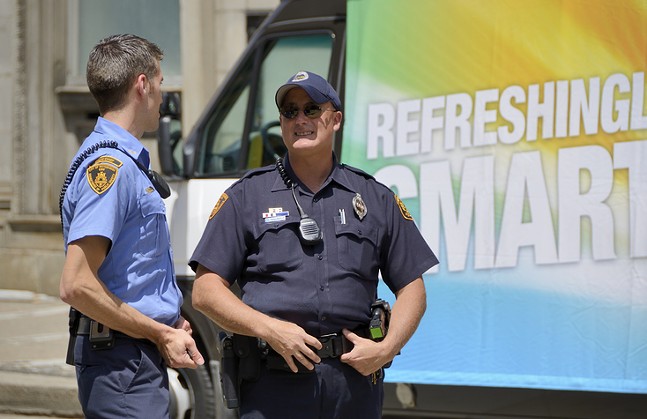Police departments and city officials have come under increasing pressure to address incidences of excessive force. Besides mass protests over how law enforcement treats Black Americans — spurred by the killing of George Floyd at the hands of officers — there are also demands to change how police respond to crisis situations.
On July 12, the Pittsburgh Office of Community Health and Safety and the Bureau of Police were awarded a Crisis Response and Intervention Team technical assistance and training grant from the U.S. Bureau of Justice Administration. A press release says the grant will go towards the development of an “effective model for police to identify what co-responders can best help in emergency situations.”
Pittsburgh Police Academy Sergeant Colleen Bristow expands says in a release that “it is essential that officers who are dispatched to calls involving people experiencing mental health, substance use, and other challenges are well-supported and trained to safely and compassionately address needs.”
Pittsburgh was also one of only three U.S. cities selected to be a part of the Bureau of Justice Assistance’s Academic Training to Inform Police Responses initiative, and the only city selected for enhanced technical assistance.
Called the CRIT program for short, the latest effort is described as helping to “further equip police officers to call in the right co-responders who can make appropriate referrals.” Police will receive training, technical assistance, and other resources to “develop and deliver multilayered approaches for people whose needs are outside the realm of traditional law enforcement," such as people experience mental health challenges.
The announcement adds to a number of changes happening after shooting deaths and clashes between protesters and law enforcement have led to community groups, activists, and politicians calling for more police reforms. In June 2020, the city created the Office of Community Health and Safety to redirect resources towards social services, public health, and social work experts equipped to assist first responders in “situations that require longer-term assistance, harm reduction support and other services,” according to a press release.
The city will also implement a ban on so-called “no-knock” warrants, used by police to enter a home without first announcing themselves. The bill is also called Breonna’s Law after Breonna Taylor, a Black woman in shot and killed by Louisville police in March 2020, after police forced their way into her apartment on a no-knock warrant.
The no-knock warrant ban bill was approved by Pittsburgh voters as a ballot initiative during the May primary election.


